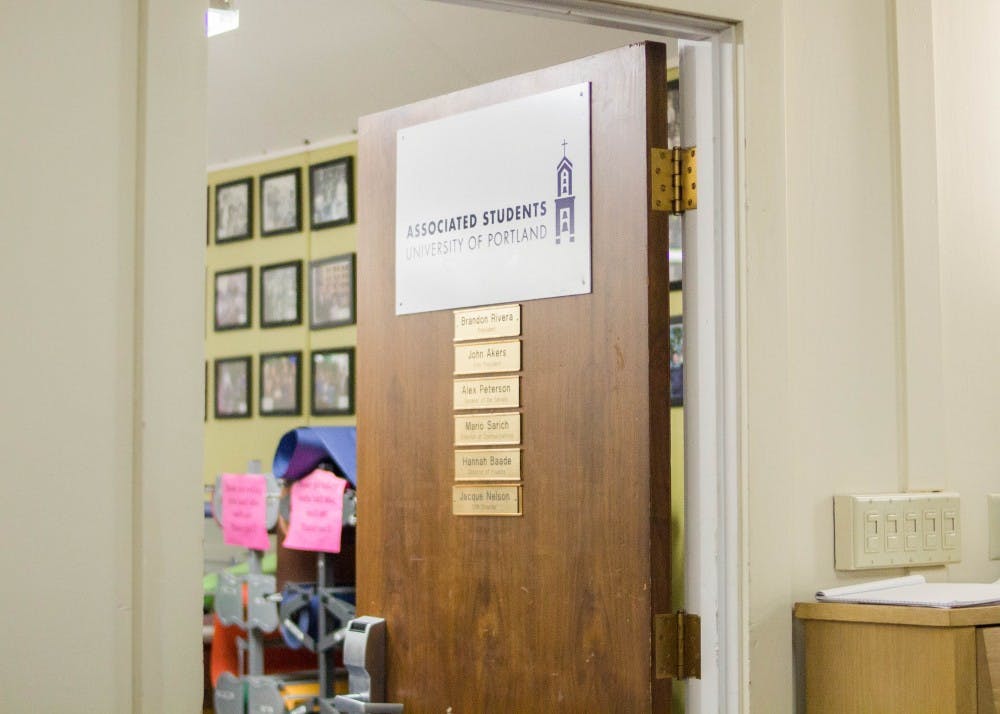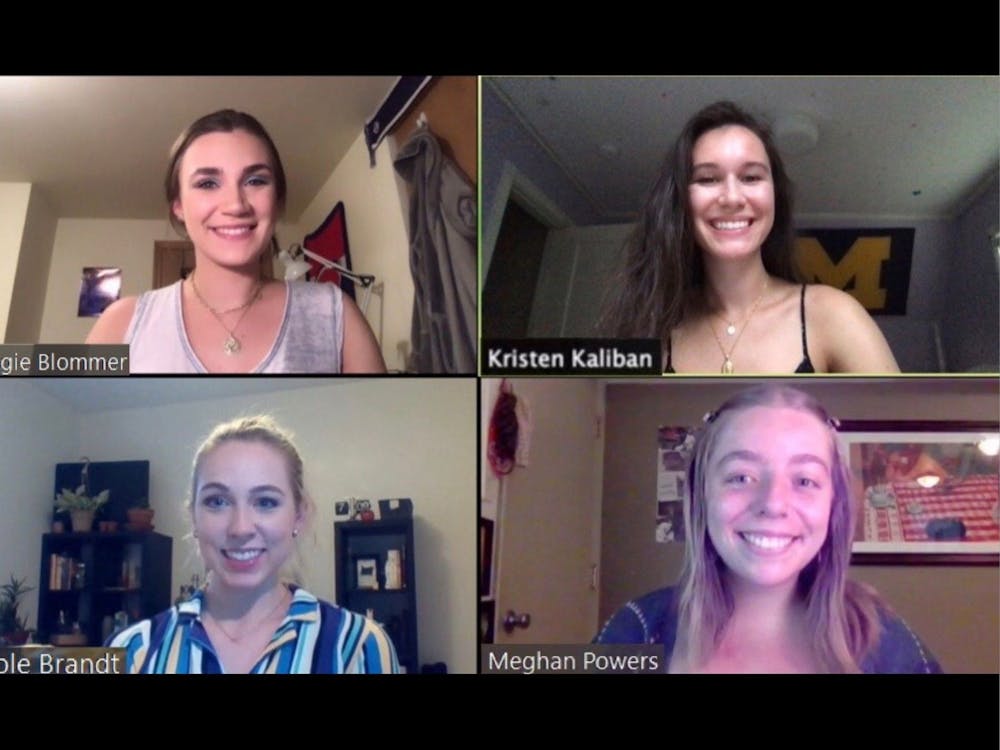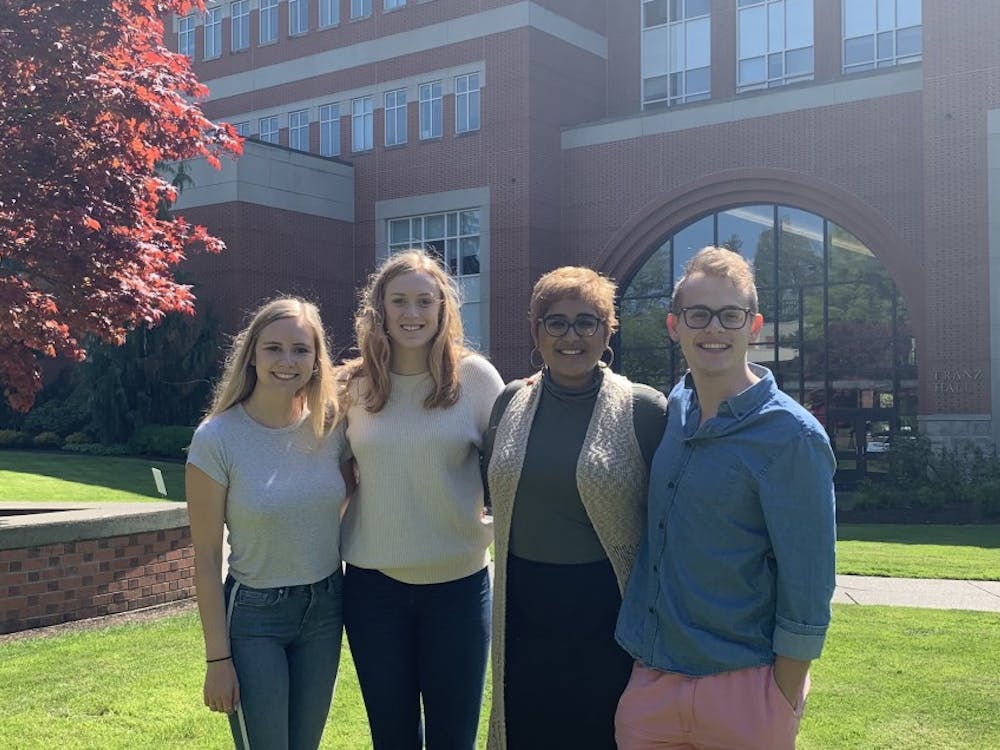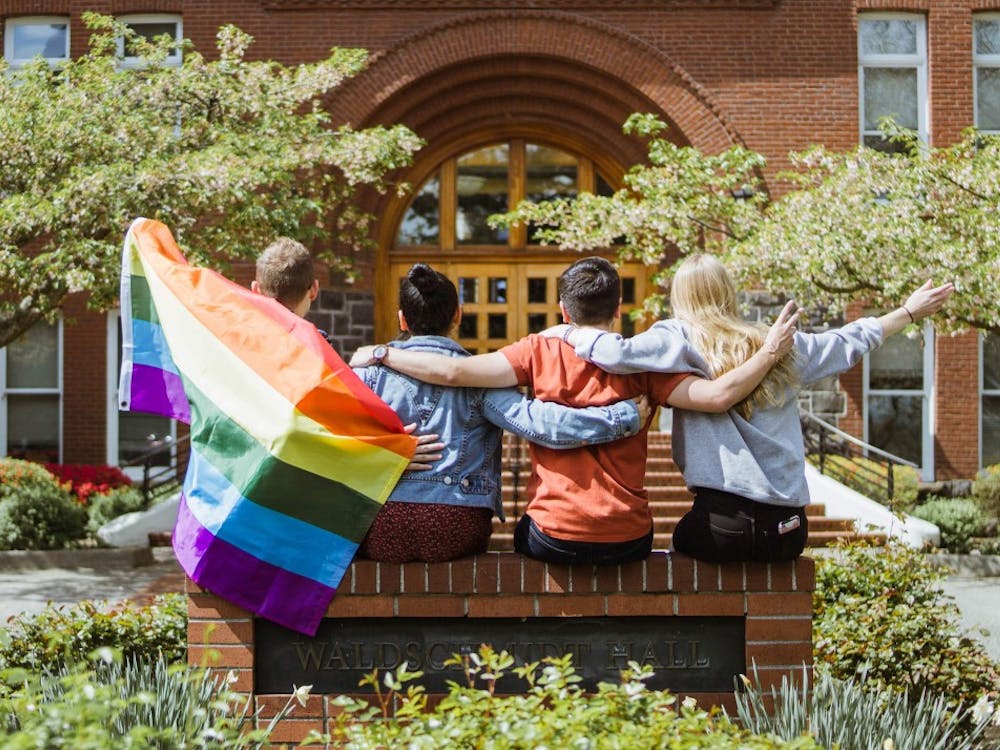The ASUP (Associated Students of the University of Portland) elections close tonight, and whoever ends up elected will have to deal with continuing issues of communication between the student body and the administration. By creating its own newsletter, we recognize ASUP has made a step toward transparency, but more work needs to be done.
During last week's Speech Night, The Beacon asked each of the presidential candidates how they would work to be advocates for students to the administration, even amid difficult controversy. Both of their answers aligned with a song that ASUP has been singing since we've been on The Bluff. Executive Board members are "liaisons" between the student body and the upper administration. They bring student concerns to the fourth floor of Waldschmidt and work on a compromise. The sentiment is nice enough, but we want more.
The ASUP Executive Board should be advocates for students, not just the middlemen. "Liaison" suggests that ASUP is neutral and unbiased, but they should be biased — toward the student body.
This is not to say that students and the administration are always at odds. Or that all students have one collective voice or opinion. Yet as much of the emphasis of candidate platforms has been on communicating and listening to students, all of that communication will be for nothing if our representatives can't have the gall to take it up to the highest office and demand change.
There have been instances in which ASUP has lobbied for student needs. This year’s Executive Board has gone to bat with Physical Plant, in an attempt to implement a broader composting system on campus. This is the kind of fire that we want to see moving forward. Being an advocate means a willingness to speak up honestly about difficult issues both to the media and the administration. We were impressed with President Brandon Rivera’s candor about the sustainability issue, and we realized that this is what ASUP has been missing.
As a news organization, The Beacon is responsible for reporting on changes, but it cannot take sides in debates or discussions without the risk of bias in its news reporting, although the editorial board weighs in on issues in editorials. However, our student government, ASUP, must be biased. ASUP should be biased toward student issues and willing and able to take a stand on behalf of its constituents, no matter what the stakes are.
Communication is a point of emphasis for both candidates running for president because the image of ASUP as unapproachable, closer to Waldschmidt than to students, is pervasive. It is a look the institution cannot seem to shake. And it doesn’t help that ASUP Executive Board members have formal, private dinners at University President Fr. Mark Poorman’s house. And when upper administrators strongly encouraged ASUP members to cut their funds for capital improvements in 2014, it didn’t take more than a semester for ASUP to eliminate this kind of spending.
It doesn’t seem unwarranted for students to believe that ASUP is likely to cave to the administration’s demands. But it doesn’t have to be this way.
We call for ASUP to advocate for the students, not the administration. Student government is run by students on behalf of all students. When the student body and the administration disagree, ASUP must be on the side of the students.
Poorman does not vote in ASUP elections. UP officials like Bon Appetit manager Kirk Mustain, Vice President of Financial Affairs Alan Timmins and Vice President of Student Affairs Fr. John Donato all hold important positions on The Bluff, but they’re not ASUP voters. We, the students, vote on ASUP Executive Board and senator positions. We’re the people ASUP needs to answer to and check in on. We pay their salaries with our $95 student government fee. We’re the reason ASUP exists.
ASUP is not blind to its own problems. At last Thursday’s Speech Night, a few ASUP candidates spoke about the separation between student government and the student body. Notably, Kathleen Burks, a candidate for ASUP director of communications, brought up how students have to rely on The Beacon for ASUP news. Burks would prefer students to get information about ASUP directly from the source. Sitara Nath, who is running for ASUP president, made a point of mentioning the disconnect between ASUP and the student body.
At the end of the day, ASUP cannot forget one simple thing: They work for the students. It’s easy to remember this on the election trail, but even easier to forget later in the year. It might sound silly, but a change in vocabulary can mean a world of difference. ASUP should be advocates, not liaisons.
Agree? Disagree? Write in!








